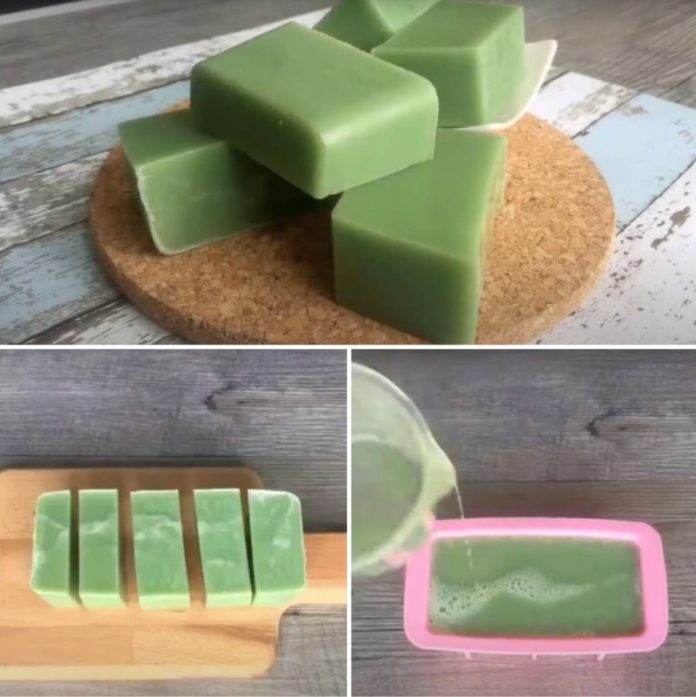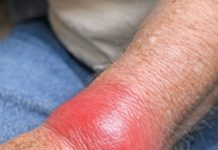In a world where commercial products often contain a long list of chemicals, making your own homemade soap can be both a rewarding and health-conscious choice. Not only is it a creative outlet, but it also allows you to customize your soap with natural ingredients that are gentle on the skin and the environment.
This unique recipe combines the cleansing properties of lemon, the disinfecting qualities of vinegar, and the antibacterial benefits of alcohol, resulting in a soap that is effective and refreshing. Whether you’re looking to reduce your exposure to synthetic chemicals or simply enjoy a DIY project, this homemade soap is an excellent option.
Ingredients :
- 1 cup liquid castile soap: A gentle soap base made from vegetable oils, ideal for skin.
- 1/2 cup distilled water: To dilute the soap for a smoother consistency.
- 1/4 cup white vinegar: Known for its natural disinfecting properties, vinegar helps eliminate germs.
- 1/4 cup rubbing alcohol (at least 70% concentration): This adds antibacterial properties and aids in disinfecting.
- Juice of 1 lemon: Lemon not only provides a fresh scent but also has natural antibacterial qualities.
- Zest of 1 lemon: For added fragrance and texture.
- Essential oils (optional): Consider adding a few drops of your favorite essential oil for a personalized touch.
Instructions :
- Gather Your Materials: Before you start, make sure you have all your ingredients and tools on hand. You’ll need a mixing bowl, a whisk, and a container for storing your soap.
- Mix the Base: In a mixing bowl, combine the liquid castile soap and distilled water. Whisk them together gently to avoid creating too many bubbles.
- Add the Disinfectants: Slowly add the white vinegar and rubbing alcohol to the mixture. Stir well, ensuring that all ingredients are fully incorporated. This combination helps boost the soap’s cleaning power.
- Incorporate the Citrus: Squeeze the juice of one lemon into the mixture, being careful to remove any seeds. Add the lemon zest for a refreshing scent and extra texture. Stir again until everything is blended.
- Customize Your Scent: If you wish to enhance the fragrance, add a few drops of your chosen essential oil. Lavender, tea tree, or eucalyptus oils are great options for their additional antibacterial properties.
- Transfer to a Container: Pour your homemade soap mixture into a clean, airtight container. A recycled soap dispenser or glass jar works well for this purpose. Make sure to label your container for easy identification.
- Let It Set: Allow the soap to sit for a few hours to let the ingredients meld together. This will enhance the fragrance and effectiveness.
- Use and Enjoy: Your homemade soap is ready to use! Simply apply a small amount to your hands or a washcloth, lather up, and rinse thoroughly. Enjoy the fresh scent and the knowledge that you’ve created a natural product.
Tips for Best Results
- Storage: Keep your soap in a cool, dark place to preserve its potency.
- Adjusting Consistency: If you prefer a thicker soap, you can reduce the amount of water. For a thinner consistency, add more water.
- Personalization: Feel free to experiment with other natural ingredients, such as honey or aloe vera, to create a soap that suits your preferences.
Conclusion :
Creating your own homemade soap using lemon, vinegar, and alcohol is not just a fun DIY project; it’s also a step towards a healthier lifestyle. By using natural ingredients, you can avoid the harsh chemicals often found in commercial soaps and tailor your soap to meet your specific needs.
Plus, the refreshing scent of lemon and the antibacterial properties of vinegar and alcohol make this soap both effective and enjoyable to use. So gather your ingredients and give this recipe a try—your skin will thank you!
Source of the picture : Barbara O’Neill










